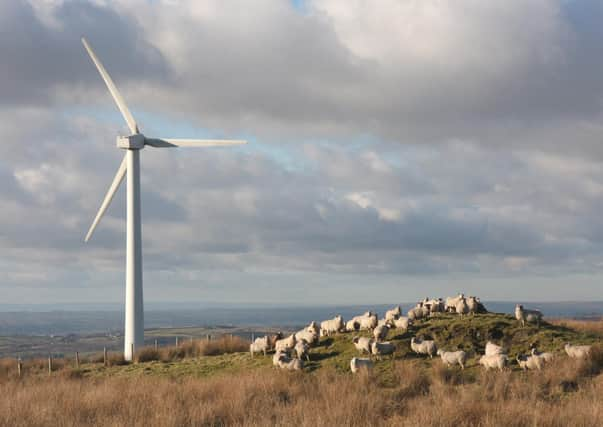What could COVID-19 mean for the future of small-scale renewables?


I do not need to remind readers that Northern Ireland was without a functioning devolved Government for three years which meant that we are already playing catch up with the rest of the UK as far as energy policy is concerned.
It was not ideal that we were starting to look at Northern Ireland energy policy post-2020 in the year 2020, this work should have started three years ago at the latest.
Advertisement
Advertisement
The 20-page response set our vision of the future role of small-scale renewable energy generation in the future energy mix. Whilst some of the proposals and initiatives proposed by the UFU were forward thinking, our response had a sadly familiar and repetitive tone. We stressed repeatedly that when drawing up a new energy policy for Northern Ireland there was an urgency to acknowledge mistakes made in the past and most importantly, to learn from them if we were to stand any chance of meeting any targets which were set going forward.
Public scepticism will be a major challenge in light of the Renewable Heat Incentive (RHI) debacle, which has left a very sour taste in the mouth of many, principally amongst scheme participants, the land-based sector and wider society. Furthermore, there is apathy amongst our members which has been instilled as a result of challenges faced in the past. For 10 years UFU members who were being encouraged to install small scale renewable installations faced significant problems in relation to grid connections and planning permission. This led to a large number of landowners not being able to get prospective projects completed, despite having spent an average of £10,000 per business in pre-grid works and agents/consultancy fees.
The Strategic Energy Framework met its target of achieving 40 percent of electricity from renewable sources in Northern Ireland by 2020. This target when set was motivated by the policy desire of switching from energy produced by fossil fuels. The 2020 Call for Evidence was completed pre-pandemic and did not stipulate specific targets. However, it did highlight the added policy goal of achieving net zero carbon emissions by 2050 and this had to be factored in as well as the continued drive to move away from the use of fossil fuels such as oil. Cumulatively known as energy transition.
Aside from concerns about the future of energy policy, farming remains ultimately placed to be part of the solution as far as the drive to net zero carbon emissions is concerned and will carry on regardless.
Which brings us to COVID-19.
Advertisement
Advertisement
The world has changed dramatically in the last two months on the back of lockdown measures introduced to tackle the COVID-19 pandemic. One-third of economy activity has disappeared and this has been reflected in oil usage, dropping from 100m barrels a day to 70m currently. Yet, oil production has remained unchanged, creating a glut of product and this has meant crude prices drop to record lows. Consequently, when we come out the other end of these uncertain and challenging times, the commitment to the climate change will be difficult to sustain in an age of low crude oil prices.
Regulatory intransigence in recent months, coupled with apathy amongst our members and a possible elongated period of low oil prices on the back of COVID-19, means that we will face an uphill task taking the land-based renewables sector forward post 2020.